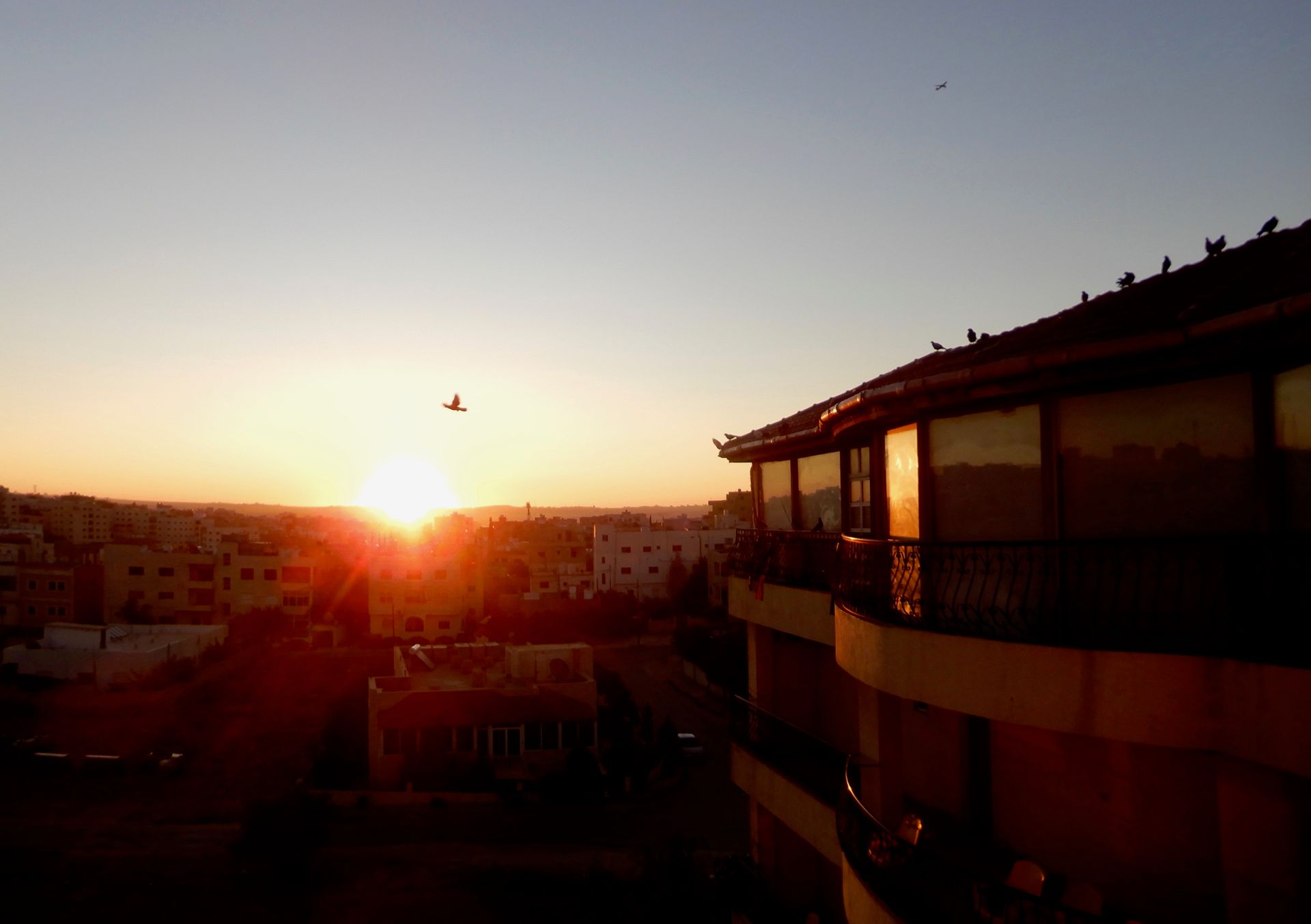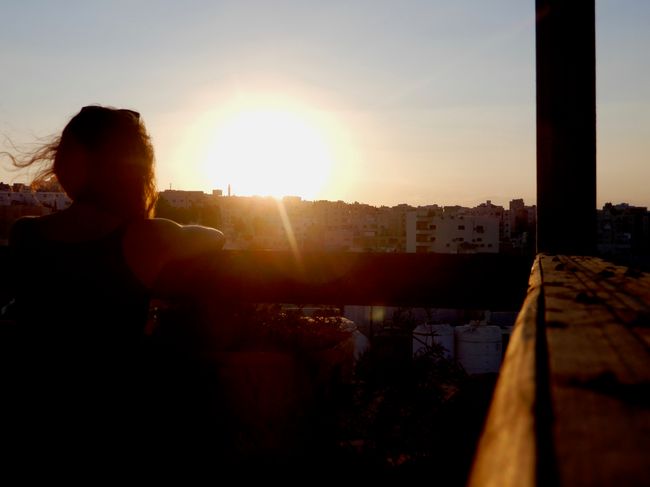First destination: Jericho
Chop etilgan: 02.02.2020
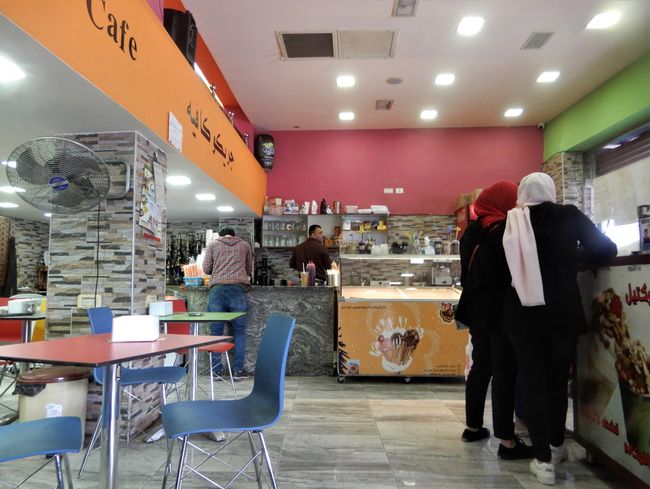
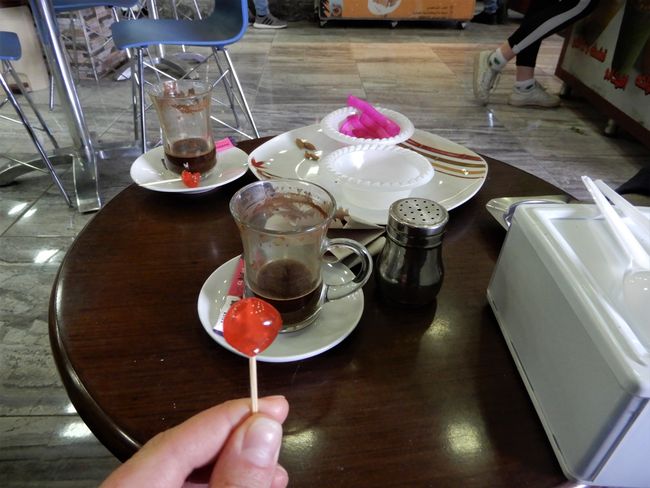
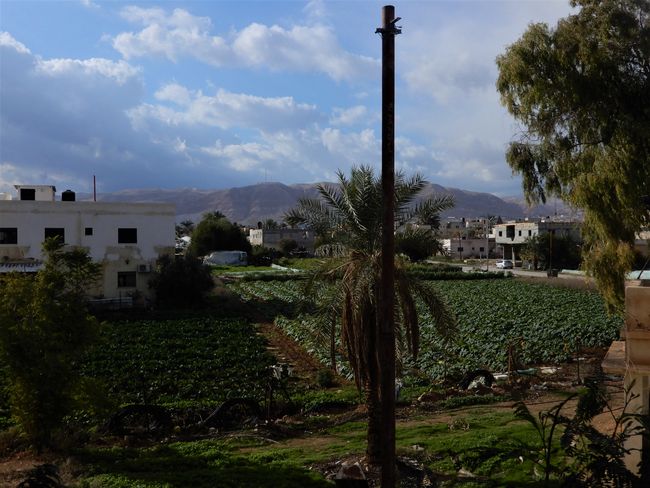
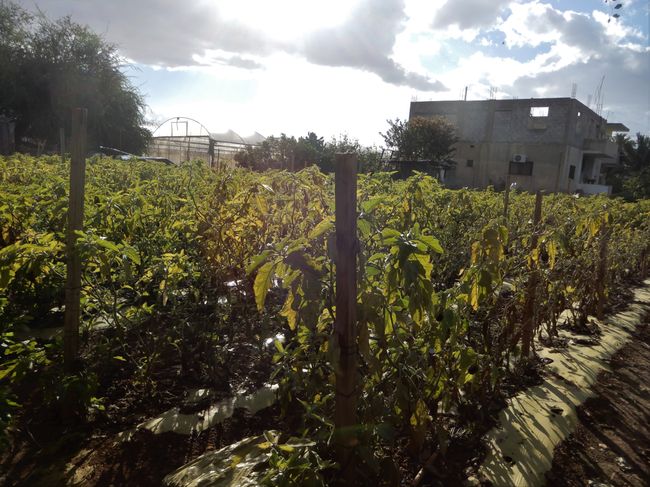
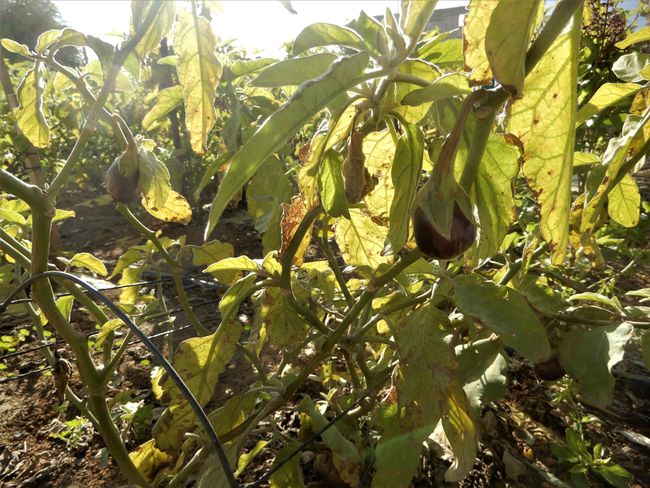
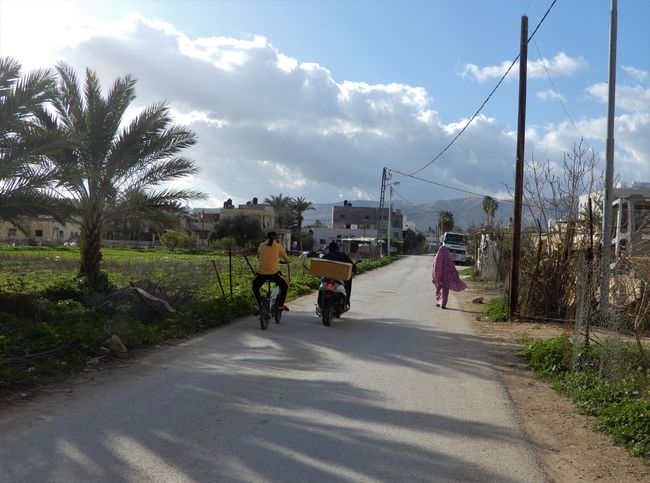
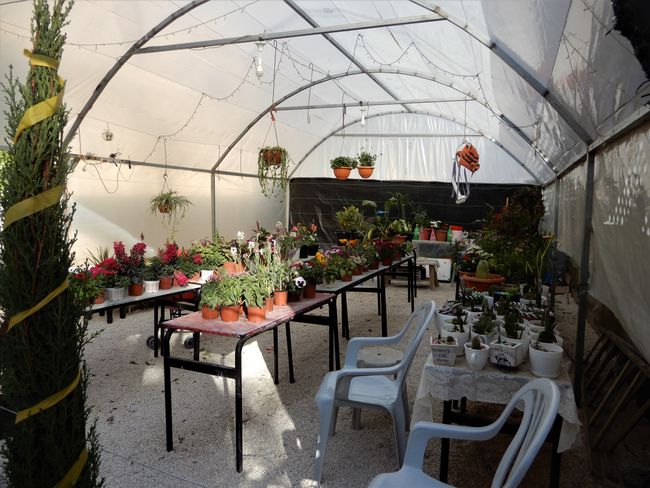
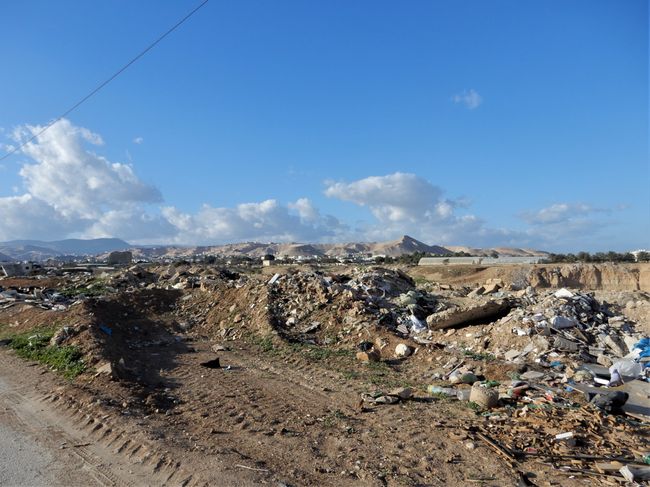
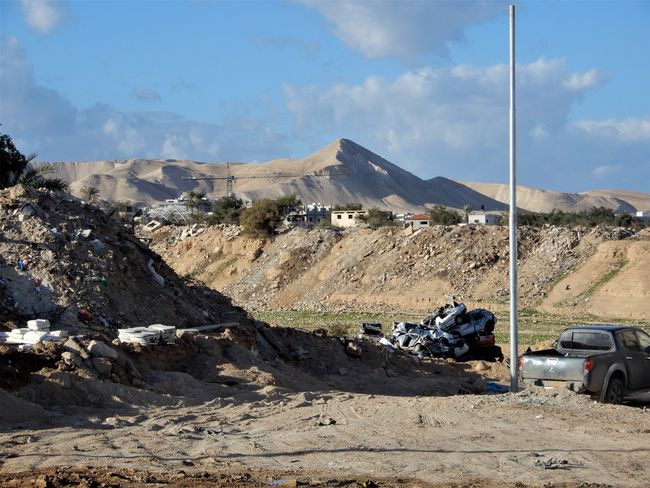
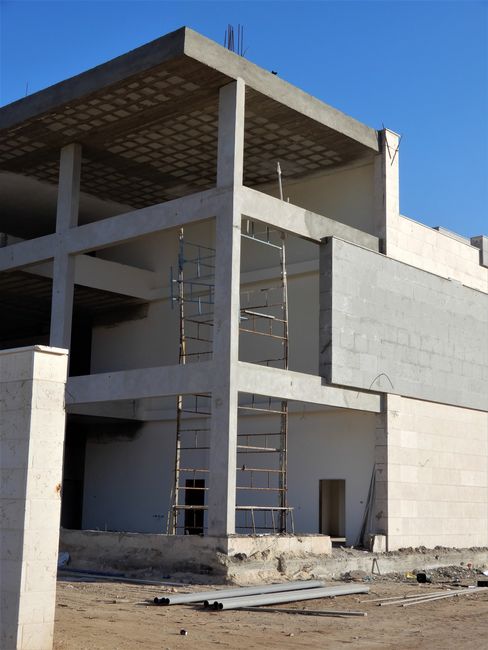
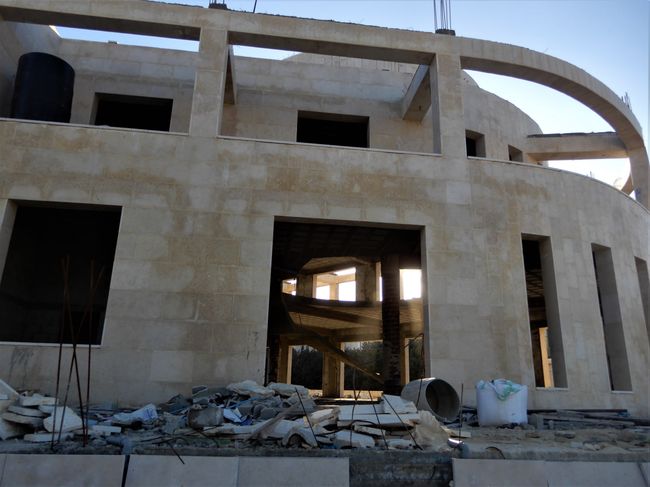
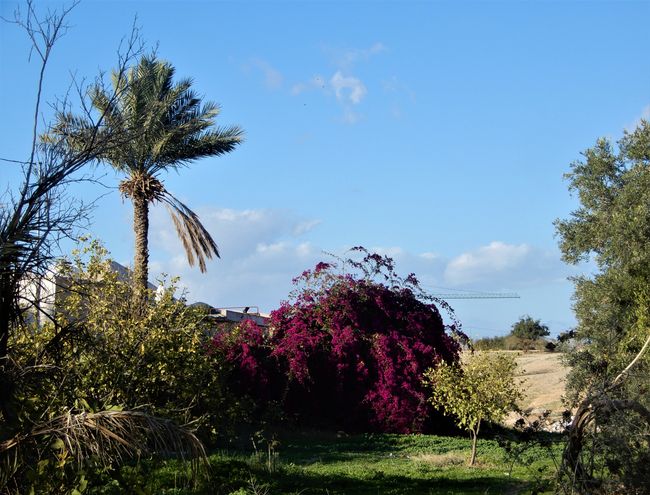
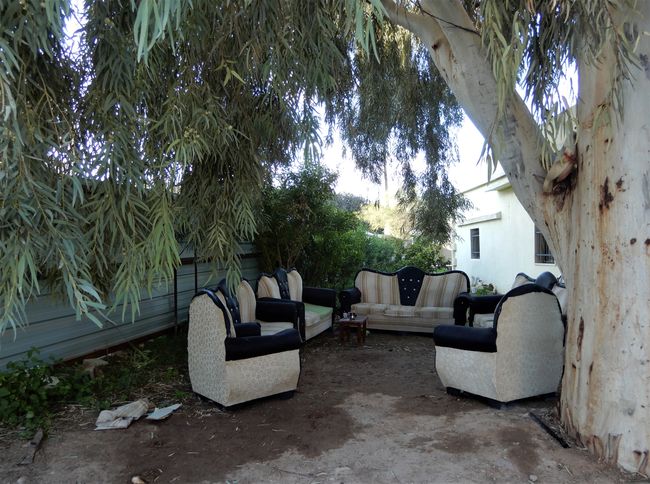
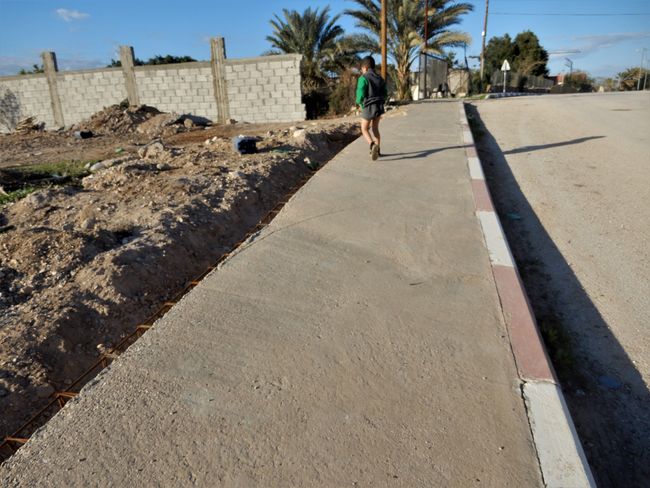
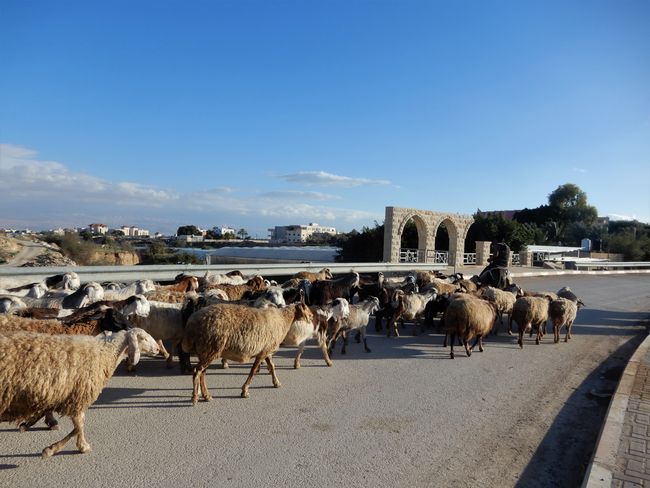
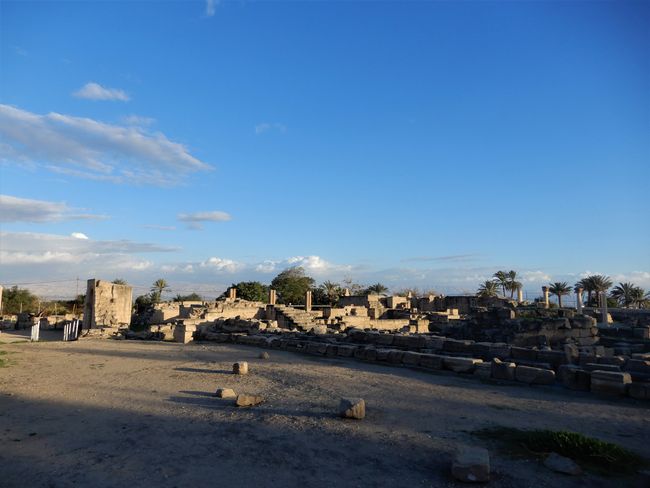
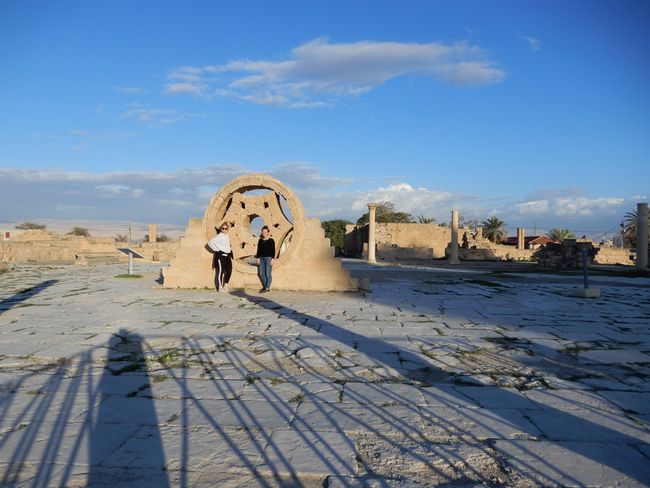
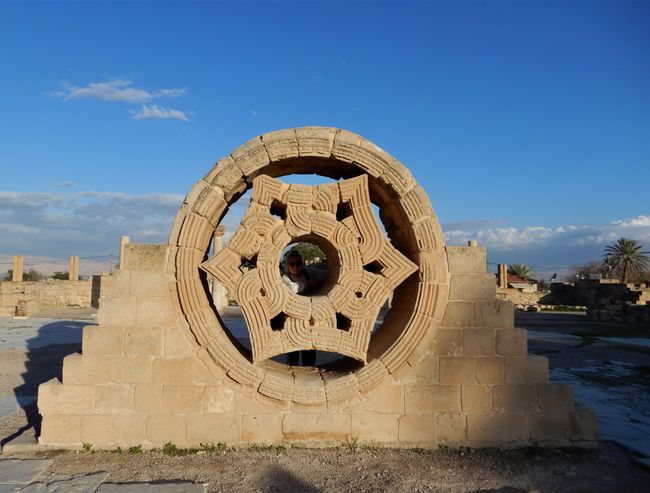
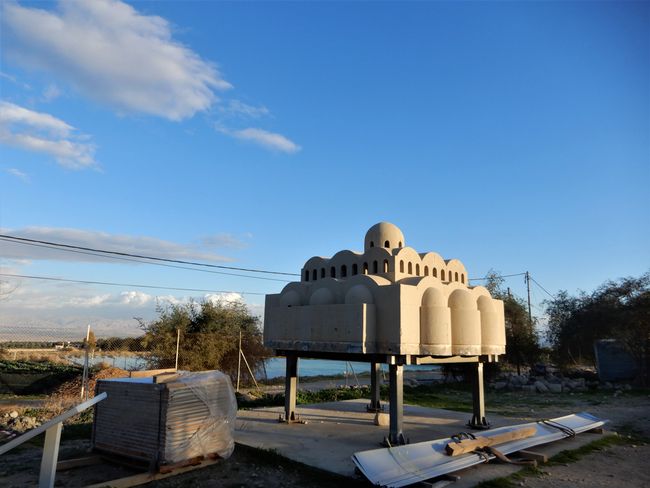
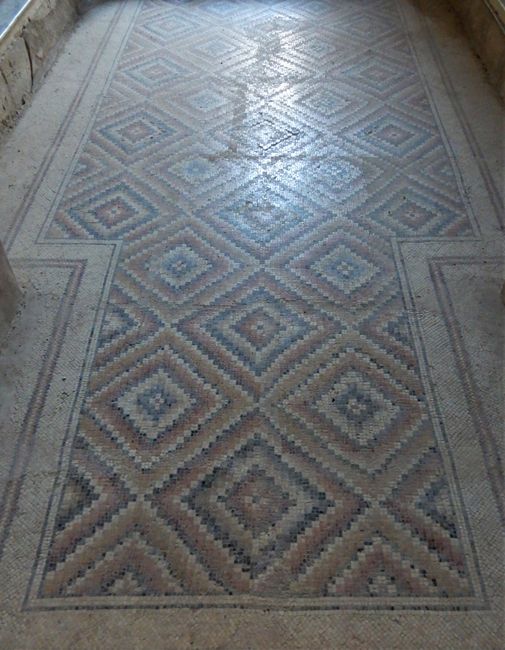
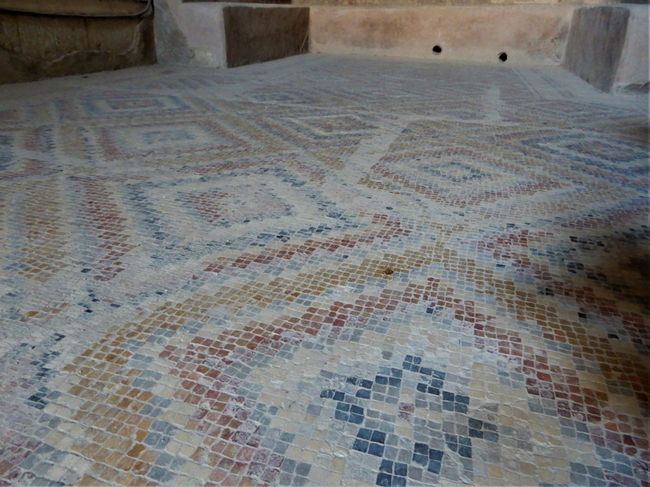
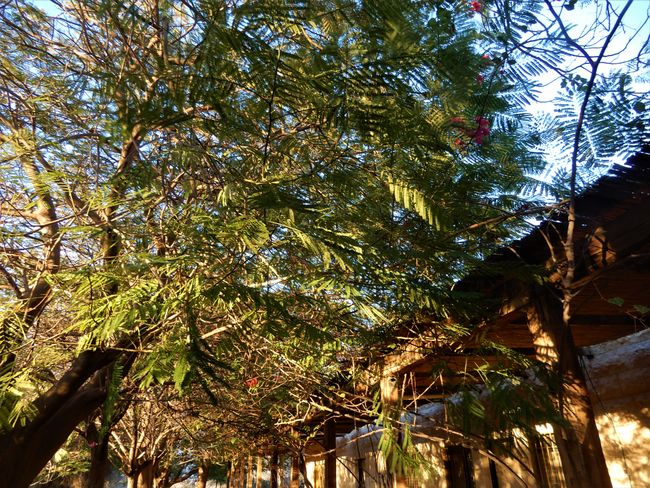
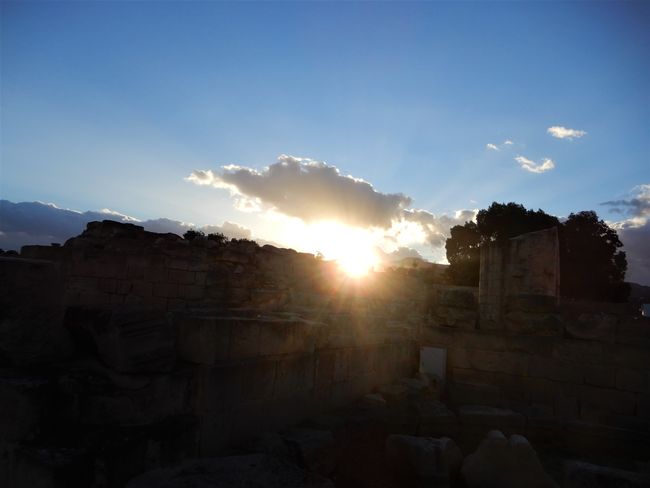
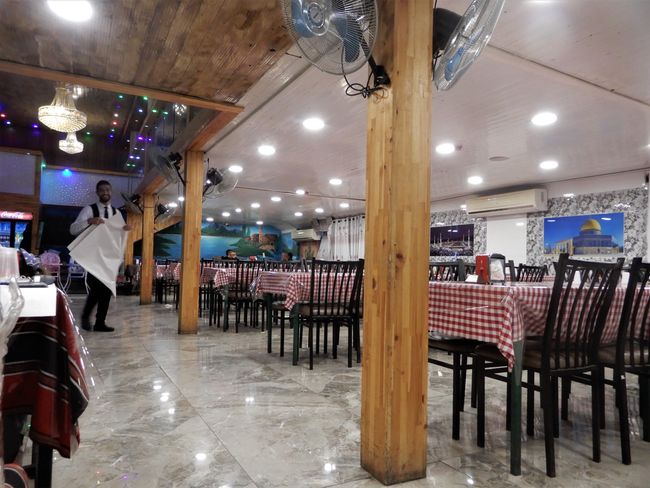
Saturday, February 1st
7 am. We get up, pack our last things, say goodbye to Rebecca and then make our way to the North bus stop. We were told yesterday that besides the extremely early Jett bus, there are also local buses and service taxis going to the border from there. So we tell our taxi driver that we want to go to the North stop and from there to the border at the King Hussein Bridge, and he takes us straight to the stop, right in the middle of a swarm of taxi drivers. I'm about to tell Lea that I have a déjà-vu from back then when we wanted to go to Salt from here, when I see one of the taxi drivers dragging my big travel backpack from our trunk into his taxi. Lea and I start loudly intervening from our car. But then it turns out that everything is fine. The service taxis today are not minibuses like usual, but these regular yellow taxis that go to the border at the same price. So now we are being taken to the King Hussein Bridge together with two other passengers.
... where we will encounter the familiar routine: handing in our passports on the Jordanian side, paying the exit fee, waiting for the shuttle to the Israeli border, luggage and personal checks there. And then, the questioning. In the current tense situation between Israel and Palestine, it is especially important today not to arouse any suspicion. If the border officer knew that we were going straight to the West Bank from here, he would certainly not give us a visa. So when asked where we want to go, we do not truthfully mention Jerusalem and Tel Aviv, but instead mention the Cinema Hostel in Jerusalem, where I stayed with Hanni back then. The officer also wants to know when we are going back to Germany. I tell him at the end of February, and he wants to see the plane ticket. The plane ticket. This time it is not a lie to say that I don't have it with me yet. Nevertheless, I am willing to search my email correspondence on my phone for a confirmation, when he tells me it's okay. And he hands us our passports along with the visa. Phew. Done.
We withdraw some Israeli shekels, then we get on one of the big red buses that go to Jericho. From there, very close to the border, we want to start our journey. What "very close" means, we realize after a 5-minute drive - we're already there. A bit confused, we look out the bus window. We stand in front of a huge building, where a few men are unloading the luggage from the bus. We wait to see what the other passengers do, and then follow them into the building.
Inside, there are two huge pictures, one of Arafat and one of Palestinian President Mahmoud Abbas. Our luggage is already there too. Uniformed officers sit behind plexiglass walls. We line up behind other passengers from our bus, until someone points out that we are in the wrong line - we need to go to the "Foreigner" line. The officer takes our passports and writes our names in a table. Then he gives us a pink slip that we should fill out. On the slip, there are only Arabic terms. So we want to ask the next officer what exactly we should do, but he takes the empty slips from us and waves us out of the building again.
So here we are now, with our luggage, not knowing what that just was and clueless about where we are. The countless taxi drivers waiting here with their vehicles are less clueless, but they know their power. Our backpacks are too heavy for us to go on long walks with them now. Besides, without internet, we can't accurately estimate how far the city center really is. So we have no choice but to get into a big taxi for a way too expensive price. After less than 5 minutes drive, we're already there. This ride definitely wasn't worth it.
Alright. Now let's first store our luggage somewhere, then we'll see. We found out before departure that the Waleed Hostel is supposed to be good and cheap and we downloaded the Google Offline map of Palestine. After wandering around a bit, we don't find a hostel at the location our map shows, so we ask in a small supermarket. "Waleed Hostel? Closed! What do you mean closed? We saw it on the internet before." The supermarket owner leads us a couple of stores further, and indeed. There are two signs with arrows pointing to "Waleed Hostel" that have seen better days. The glass door to it is closed. The owner shrugs his shoulders.
So what do we do now? We decide to get a SIM card with internet after all and then go to a café for coffee and a falafel sandwich. Sitting feels good. Now we can calmly search for hostels again with our new SIM card, and then we find out that the Waleed Hostel still exists. However, it is in a different location. And as we can see on the map, it's only a stone's throw away from where we arrived this morning by bus. So our taxi ride was doubly not worth it.
Our waiter brings us a cherry on a toothpick for free, and we ask him if he knows a cheap alternative to get to our hostel. We don't want to spend a fortune on another taxi ride. He doesn't speak English very well and discusses it with his colleagues first, until he finally offers to drive us in his car. So we get into a rickety Caddy, bump along through Jericho's streets, and eventually arrive at Waleed's Hostel. Finally.
We enter the hostel and find ourselves in front of an unmanned reception on the first floor. From the large adjacent terrace, we are then addressed in a familiar language. An older German tourist is sitting there with a book and tells us that the hostel owner is probably taking his nap right now. So we sit on the terrace with a tea for a while, but then decide to go for a walk. The weather is really nice. And almost summery warm.
Which probably comes from the fact that Jericho is 250 meters below sea level, the lowest city in the world, as we read. This results in a mild climate here all the time. We also notice how lush green this city is. We're not used to that anymore from Amman. Palm trees, trees, cabbage and eggplant fields everywhere, and generally many green areas. Birds chirping in the trees, bicycles and e-bikes on the streets. Apart from some rubble and heaps of garbage, the attention we attract, and the shouting that echoes after us, everything is really idyllic here. As Lea aptly notes, it really feels like a proper vacation here.
However, we don't walk around the streets and fields completely aimlessly. We found out beforehand that the Hisham Palace is nearby, a Umayyad palace complex that is still preserved in ruins. Apparently, Caliph Hisham resided here in the 8th century AD before the palace complex was destroyed by an earthquake. The highlight of the ruins is the large bath complex, which contains a huge, almost perfectly preserved mosaic floor. But when we arrive there, we find out that this bath complex is currently under construction (a huge dome is supposed to be built over it), so the mosaic cannot be visited at the moment. Too bad. Nevertheless, we explore the remaining ruins, which look quite nice in the evening sun, and then in the small museum on the site, we can see an animation of what the bath complex will look like after the reconstruction.
The security guard keeps us company for a short while in the museum and invites us for tea in the ticket booth. So we sit there for a short chat with him and the other employee who is now closing the site and takes us by car into the city. We are really grateful for that - we didn't even notice that we had walked so far.
We return to have dinner - hummus and a sandwich - in a restaurant and then make our way back to the hostel, where we meet Waleed on the terrace. He has already taken our luggage to our dormitory, thanks to the other German guest who told him about us. He also explains the tours he offers here for his guests with his car. There is still a lot to see in Jericho. However, we will decide tomorrow what we want to do, and right now we need some sleep. We have the dormitory all to ourselves and cozy up with our hot water bottles in our beds.
Javob
